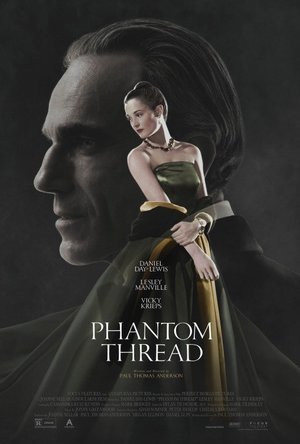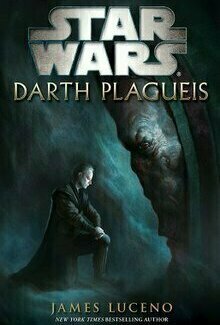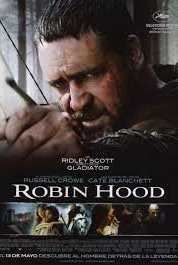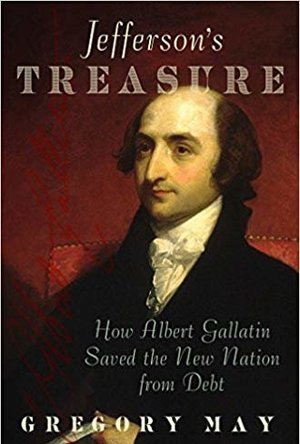Search
Search results
Awix (3310 KP) rated Phantom Thread (2017) in Movies
Feb 9, 2018 (Updated Feb 9, 2018)
Not a Fun Guy to Be With
Yet another reissue of the controversial 1999 movie, but this time George Lucas has taken out all the stuff with taxation and Jar Jar Binks in favour of fashion design... ha ha, I jest.
Daniel Day-Lewis plays an obsessional creative genius who throws himself completely into his work and is very demanding of everyone around him, and is occasionally prone to hallucinating dead family members (so perhaps this role was less of a stretch for him than many).
Initially this comes across as a slightly so-what romantic drama about the relationship between a powerful, privileged man and a much younger woman, with him as a manipulative user and her, essentially, as a victim, but it eventually turns into a dark and even slightly twisted tale of what it sometimes takes to make a relationship work.
Day-Lewis is good, obviously, but so is Vicky Krieps as the woman in his life; presumably it's only her obscurity that's kept her from getting awards nods as she is really as good as he is.
Probably not for everyone, but Paul Anderson's most satisfying and accessible film for some years.
Daniel Day-Lewis plays an obsessional creative genius who throws himself completely into his work and is very demanding of everyone around him, and is occasionally prone to hallucinating dead family members (so perhaps this role was less of a stretch for him than many).
Initially this comes across as a slightly so-what romantic drama about the relationship between a powerful, privileged man and a much younger woman, with him as a manipulative user and her, essentially, as a victim, but it eventually turns into a dark and even slightly twisted tale of what it sometimes takes to make a relationship work.
Day-Lewis is good, obviously, but so is Vicky Krieps as the woman in his life; presumably it's only her obscurity that's kept her from getting awards nods as she is really as good as he is.
Probably not for everyone, but Paul Anderson's most satisfying and accessible film for some years.
Awix (3310 KP) rated Darth Plagueis in Books
Oct 22, 2019 (Updated Oct 23, 2019)
Decent Star Wars tie-in is likely to satisfy devotees even if the book you get is possibly not the one you're expecting. Are you expecting the facts of the life of Darth Plagueis the Wise, legendary Sith Lord? Well, brace yourselves, for Luceno cheerfully disregards almost everything suggested about Plagueis in Episode III (where he is briefly mentioned) in favour of telling what is basically the story of Palpatine and his master (the future Emperor shows up about a third of the way through).
Relatively little action for what is, after all, a Star Wars novel, but lots and lots of political scheming and back-story, much of it (I gather) painstakingly honed to fit in with other books in the same continuity. Quite well-written and readable, though the tendency of Sith Lords to have vaguely absurd names continues. Concludes with the events of Episode I: doesn't fix every problem with that movie, but if you're wondering just why there was all that fuss about debates over taxation the book does a good job of filling in the detail. Is that a backhanded compliment? Well, if you're genuinely interested in that stuff, you'll probably enjoy this book; if not, I would look elsewhere.
Relatively little action for what is, after all, a Star Wars novel, but lots and lots of political scheming and back-story, much of it (I gather) painstakingly honed to fit in with other books in the same continuity. Quite well-written and readable, though the tendency of Sith Lords to have vaguely absurd names continues. Concludes with the events of Episode I: doesn't fix every problem with that movie, but if you're wondering just why there was all that fuss about debates over taxation the book does a good job of filling in the detail. Is that a backhanded compliment? Well, if you're genuinely interested in that stuff, you'll probably enjoy this book; if not, I would look elsewhere.
Gareth von Kallenbach (980 KP) rated Robin Hood (2010) in Movies
Aug 8, 2019
If you think you know the tale of Robin Hood in its entirety, think again. A prequel to the traditional story, “Robin Hood” provides the long awaited history of the most classic of well-intentioned thieves and his band of men…who are merry.
Starring Russell Crowe as the lead of Robin Longstride, we see a character that is slightly different than Crowe’s most historic role (in “Gladiator”). But stealing the show is Cate Blanchett as the powerful and strong, yet subtle, Maid Marion Loxley. Other sure-to-be favorites include the beekeeping Friar Tuck played by “The Full Monty’s” Mark Addy and Kevin Durand as the hammer wielding (not so) Little John.
I have to admit, I was reluctant to see this film. Did I really want to watch Russell Crowe lead a small group against wildly impossible odds, again? After having seen “Robin Hood”, the answer is “Yes!” Sure, there is another team of rag-tag characters to battle on behalf of good, but this time they are likeable takes on the merry men of my childhood, with a more historic and adult perspective. The result is simply amusing.
And “Robin Hood” exceeds expectations in the simple details with accurate costumes, well-understood historic locations, and a number of short but sweet fight sequences. The film was so detailed I already plan to be Internet searching away through my next viewing to see how the historic places exposed throughout the film look today. Film students will surely rejoice.
Had I not known the original story to the finest detail, “Robin Hood” might have been a believable tale. The film’s major conflicts all stem from realistic challenges such as food shortages and burdensome taxation. Is it possible that “Robin Hood” will strike a chord of relevance to current economic concerns? Maybe not, but it will be a fun time at the movies.
Starring Russell Crowe as the lead of Robin Longstride, we see a character that is slightly different than Crowe’s most historic role (in “Gladiator”). But stealing the show is Cate Blanchett as the powerful and strong, yet subtle, Maid Marion Loxley. Other sure-to-be favorites include the beekeeping Friar Tuck played by “The Full Monty’s” Mark Addy and Kevin Durand as the hammer wielding (not so) Little John.
I have to admit, I was reluctant to see this film. Did I really want to watch Russell Crowe lead a small group against wildly impossible odds, again? After having seen “Robin Hood”, the answer is “Yes!” Sure, there is another team of rag-tag characters to battle on behalf of good, but this time they are likeable takes on the merry men of my childhood, with a more historic and adult perspective. The result is simply amusing.
And “Robin Hood” exceeds expectations in the simple details with accurate costumes, well-understood historic locations, and a number of short but sweet fight sequences. The film was so detailed I already plan to be Internet searching away through my next viewing to see how the historic places exposed throughout the film look today. Film students will surely rejoice.
Had I not known the original story to the finest detail, “Robin Hood” might have been a believable tale. The film’s major conflicts all stem from realistic challenges such as food shortages and burdensome taxation. Is it possible that “Robin Hood” will strike a chord of relevance to current economic concerns? Maybe not, but it will be a fun time at the movies.
Sassy Brit (97 KP) rated Jefferson's Treasure: How Albert Gallatin Saved the New Nation from Debt in Books
Jun 5, 2019
Jefferson’s Treasure, by Gregory May, details, “how Albert Gallatin saved the new nation from debt.” Appointed by President Thomas Jefferson to be his Treasury Secretary, Gallatin continued under President Madison, maintaining that position for twelve years. During his tenure, he abolished internal revenue taxes in peacetime, slashed federal spending, and repaid half of the national debt.
So who was this man that undid Alexander Hamilton’s fiscal system, rejecting it along with Madison and Jefferson? Because both Presidents did not understand the financial system, they depended on Gallatin to reform it. Gallatin arrived in America in 1790 from Geneva and rose up to become a trusted advisor of the Republicans. Six years before Jefferson was elected President, Gallatin’s Pennsylvania neighbors rebelled against the tax on whiskey. He supported them in principle but opposed the violence that ensued, burning the local tax collector’s house, robbing the mail, and marching on Pittsburgh.
The play “Hamilton” uses revisionist history. The real Hamilton believed in big government and wanted to continue funding federal deficits. He based his theories on the British who used the money to fund their large military conflicts, believing that the ability to borrow endless amounts of money would allow the new United States to become a great nation. Jefferson and Madison thought Hamilton’s system, straight from the British way, was tainted with tyranny. As May noted, “It made the people pay obnoxious taxes in order to fund interest payments on a mounting federal debt and the costs of an expensive military establishment. It shifted money from ordinary taxpayers to the relatively few rich men who held the government’s bonds. That was just the sort of thing that had led Americans to revolt against Britain in the first place.”
May believes, “The hip-hop immigrant hero of the Broadway musical is a myth. The musical might be a great work of art, but is relies on misconceptions of Hamilton. He was not an immigrant, but a migrant within the British Empire. Also, he was not a man of the people, as Gallatin was, but an elitist.”
While Hamilton committed to paying only the interest on the government’s debt, Gallatin committed the government to repaying fixed amounts of the principal each year. He also insisted that the government should never spend more than it earned except in times of war. By slashing federal expenses, Gallatin was able to get rid of the tax on whiskey and abolish the entire internal revenue service.
The Republicans, an agrarian society, distrusted these elitists where two-thirds of the government debt belonged to a few hundred very wealthy men residing mainly in Philadelphia, New York, and other mercantile cities. They saw Hamilton’s plan of collecting taxes from ordinary citizens as a way for a few rich men to become even wealthier. Implementing these excise taxes required government officials to inspect, quantify, and mark the items subject to tax.
The Hamilton system benefited the wealthy debt holders and spectators at the expense of the average taxpayer who had to pay the interest. The government would borrow more than the people could pay. Hamilton tried to hide how much money the government was actually spending and spiraled the debt higher and higher.
This was an important part of the British tax base, and “I wanted to show how unpopular it was. Hamilton and company were resented because they created a tax collection network that affected the lives of ordinary citizens. The excise tax is a form of internal taxation, while tariffs are a form of external taxation that fell on the well to do. Remember mostly the well to do bought imports. The Republicans once they came to power relied on import duties rather than excise taxes.”
May further explained, “When Jefferson and his administration came to power it was Gallatin who got rid of Hamilton’s deficit finance system and cut taxes. By the time he has left office he has repaid half the federal debt and set up a program for repaying the rest.”
Anyone who wants to understand the early economic systems of the Founding Fathers will enjoy this book. It shows how Gallatin, by killing Hamilton’s financial system, abolished internal revenue taxes in peacetime, slashed federal spending, and repaid half of the national debt.
So who was this man that undid Alexander Hamilton’s fiscal system, rejecting it along with Madison and Jefferson? Because both Presidents did not understand the financial system, they depended on Gallatin to reform it. Gallatin arrived in America in 1790 from Geneva and rose up to become a trusted advisor of the Republicans. Six years before Jefferson was elected President, Gallatin’s Pennsylvania neighbors rebelled against the tax on whiskey. He supported them in principle but opposed the violence that ensued, burning the local tax collector’s house, robbing the mail, and marching on Pittsburgh.
The play “Hamilton” uses revisionist history. The real Hamilton believed in big government and wanted to continue funding federal deficits. He based his theories on the British who used the money to fund their large military conflicts, believing that the ability to borrow endless amounts of money would allow the new United States to become a great nation. Jefferson and Madison thought Hamilton’s system, straight from the British way, was tainted with tyranny. As May noted, “It made the people pay obnoxious taxes in order to fund interest payments on a mounting federal debt and the costs of an expensive military establishment. It shifted money from ordinary taxpayers to the relatively few rich men who held the government’s bonds. That was just the sort of thing that had led Americans to revolt against Britain in the first place.”
May believes, “The hip-hop immigrant hero of the Broadway musical is a myth. The musical might be a great work of art, but is relies on misconceptions of Hamilton. He was not an immigrant, but a migrant within the British Empire. Also, he was not a man of the people, as Gallatin was, but an elitist.”
While Hamilton committed to paying only the interest on the government’s debt, Gallatin committed the government to repaying fixed amounts of the principal each year. He also insisted that the government should never spend more than it earned except in times of war. By slashing federal expenses, Gallatin was able to get rid of the tax on whiskey and abolish the entire internal revenue service.
The Republicans, an agrarian society, distrusted these elitists where two-thirds of the government debt belonged to a few hundred very wealthy men residing mainly in Philadelphia, New York, and other mercantile cities. They saw Hamilton’s plan of collecting taxes from ordinary citizens as a way for a few rich men to become even wealthier. Implementing these excise taxes required government officials to inspect, quantify, and mark the items subject to tax.
The Hamilton system benefited the wealthy debt holders and spectators at the expense of the average taxpayer who had to pay the interest. The government would borrow more than the people could pay. Hamilton tried to hide how much money the government was actually spending and spiraled the debt higher and higher.
This was an important part of the British tax base, and “I wanted to show how unpopular it was. Hamilton and company were resented because they created a tax collection network that affected the lives of ordinary citizens. The excise tax is a form of internal taxation, while tariffs are a form of external taxation that fell on the well to do. Remember mostly the well to do bought imports. The Republicans once they came to power relied on import duties rather than excise taxes.”
May further explained, “When Jefferson and his administration came to power it was Gallatin who got rid of Hamilton’s deficit finance system and cut taxes. By the time he has left office he has repaid half the federal debt and set up a program for repaying the rest.”
Anyone who wants to understand the early economic systems of the Founding Fathers will enjoy this book. It shows how Gallatin, by killing Hamilton’s financial system, abolished internal revenue taxes in peacetime, slashed federal spending, and repaid half of the national debt.



